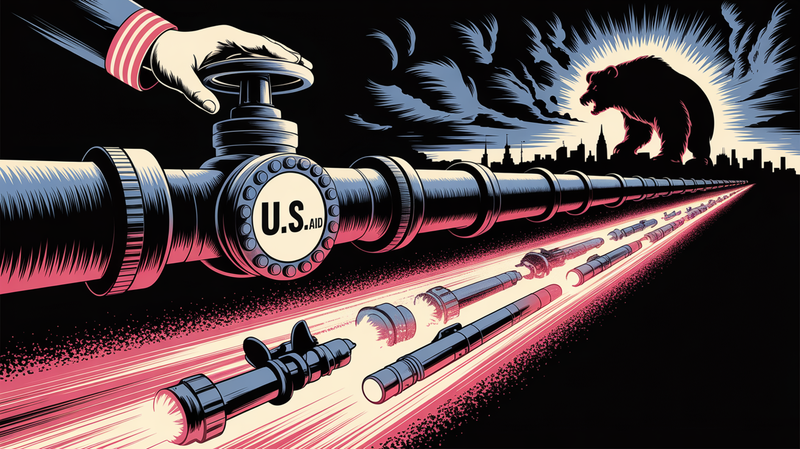Ukraine: Europe's Potential Vietnam – A Long-Drawn Conflict in Sight?
The Ukrainian crisis, which has seen Russia's involvement since 2014, has provoked comparisons to the Vietnam War, during which the United States sought to prevent a communist takeover of South Vietnam. While the contexts are different, the protracted nature of both conflicts and the involvement of major world

The Ukrainian crisis, which has seen Russia's involvement since 2014, has provoked comparisons to the Vietnam War, during which the United States sought to prevent a communist takeover of South Vietnam. While the contexts are different, the protracted nature of both conflicts and the involvement of major world powers make the comparison noteworthy. This article explores why Ukraine could potentially become a long-standing conflict akin to Vietnam.
1. Foreign Involvement
Vietnam War: The U.S. intervened to support the anti-communist government in South Vietnam.
Ukraine: Russia’s involvement in eastern Ukraine and its annexation of Crimea in 2014 drew international condemnation and led to the imposition of sanctions. Western nations have supported Ukraine through non-lethal aid and sanctions against Russia.
2. Ideological Struggle
Vietnam War: It was a front in the Cold War — a struggle between communist and capitalist ideologies.
Ukraine: The crisis is seen by some as a geopolitical tug-of-war between the Western aspiration of many Ukrainians and Russia’s desire to keep Ukraine within its sphere of influence.
3. Protracted Conflict
Vietnam War: The war, lasting from 1955 to 1975, was prolonged and costly for all parties involved.
Ukraine: Since 2014, the conflict in eastern Ukraine has been a slow-burning one, with no definitive end in sight, much like Vietnam.
4. Civilian Suffering
Vietnam War: Massive civilian casualties and widespread destruction became a defining aspect of the war.
Ukraine: The conflict has already had a substantial human cost, with thousands of civilians killed and displaced.
5. International Implications
Vietnam War: The U.S. involvement in Vietnam was part of a broader strategy to contain communism globally.
Ukraine: The situation in Ukraine is a key factor in Russia-West relations, and it plays a significant role in the geopolitics of Europe and beyond.
Potential for a 20-year War
Several factors may contribute to the extension of the conflict in Ukraine:
1. Strategic Importance: For Russia, maintaining influence over Ukraine is seen as a vital national interest, given Ukraine’s historical, cultural, and strategic importance.
2. Western Involvement: The Western world has shown a commitment to supporting Ukraine’s sovereignty, making a Russian retreat less likely unless significant concessions are made.
3. Frozen Conflict: The conflict, particularly in eastern Ukraine, has elements of a 'frozen conflict', where active combat has subsided but no formal peace has been reached.
Implications of a Long-Drawn Conflict
A 20-year conflict in Ukraine, like the Vietnam War for the U.S., could have several serious implications:
- Humanitarian Crisis: Prolonged warfare would likely result in significant civilian suffering, much like in Vietnam.
- Economic Strain: A two-decade-long conflict would place immense strain on Ukraine’s economy and could affect Europe due to its close economic ties with Ukraine.
- Global Relations: As in Vietnam, a prolonged conflict in Ukraine could worsen relations between Russia and Western nations, potentially leading to a new, intense phase of global tensions.
Conclusion
While the comparison between the Ukraine crisis and the Vietnam War helps to illuminate the potential for prolonged conflict, significant differences remain. The Vietnam War was largely a proxy conflict in the broader Cold War, while the Ukraine crisis is more directly a struggle for national sovereignty and territorial integrity in a new geopolitical era. Nonetheless, the comparison serves as a cautionary reminder of the devastating toll that long-standing conflicts can inflict, urging the international community to seek peaceful and lasting solutions in Ukraine.




